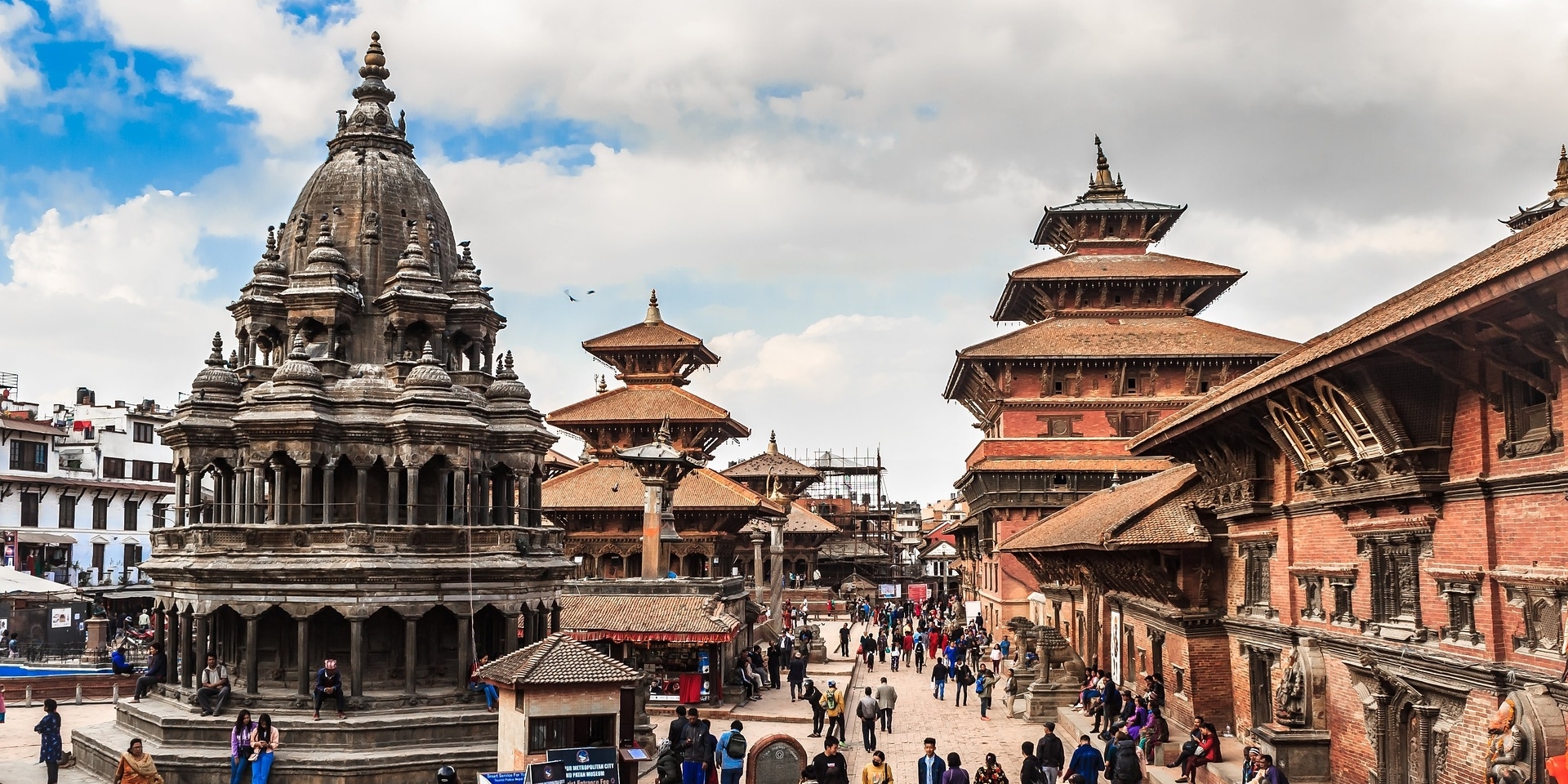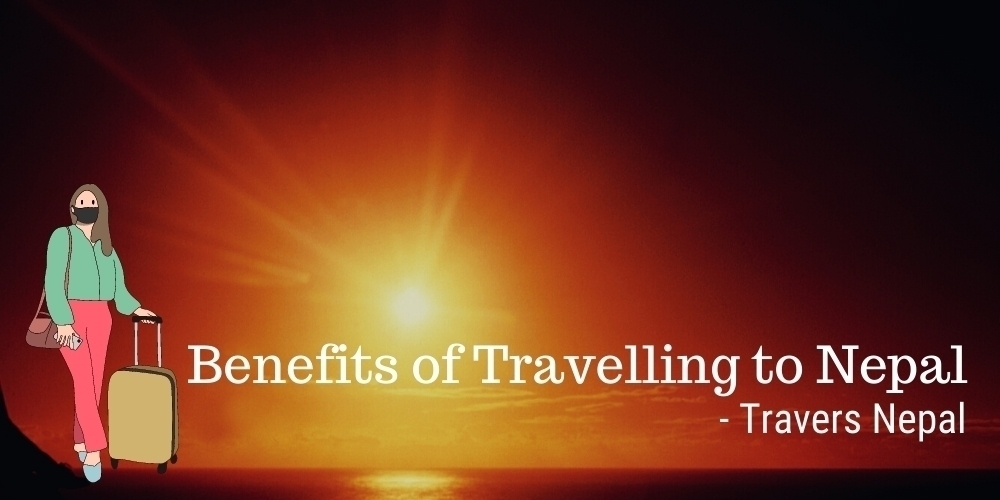
On a journey to Nepal is an exciting adventure filled with breathtaking landscapes, diverse cultures, and unforgettable experiences. Before you pack your bags and head to the mystical land of the Himalayas, there are several key things you need to know to make the most of your trip. This guide will provide you with valuable insights, ensuring that your visit to Nepal is smooth, enjoyable, and filled with wonderful memories.
Nepal welcomes travelers with open arms, but it's essential to be aware of the visa requirements. Most nationalities can obtain a visa on arrival, but it's advisable to check the latest updates on the official government website. Additionally, certain regions, like trekking areas and conservation areas, may require special permits. Make sure to research and acquire the necessary permits well in advance.
Ensuring your health and well-being is crucial when traveling to Nepal. Consult your healthcare provider for recommended vaccinations, including those for typhoid, hepatitis A and B, and Japanese encephalitis. Altitude sickness is a concern in higher regions, so acclimatize gradually during treks and stay hydrated. Carry a basic medical kit with essentials like pain relievers, bandages, and any prescribed medications.
The official currency in Nepal is the Nepalese Rupee (NPR). While credit cards are widely accepted in urban areas, it's advisable to carry cash, especially in remote locations. ATMs are available, but it's wise to withdraw enough cash beforehand as they may be scarce in rural areas.
Nepal is rich in cultural diversity, with various ethnic groups and traditions. Respect local customs and traditions, especially when visiting religious sites. Modesty in dress is appreciated, and always seek permission before photographing locals. Greetings are often accompanied by a 'Namaste,' a traditional gesture of respect with hands pressed together.
Nepali is the official language, but English is widely spoken, especially in tourist areas. Learning a few basic Nepali phrases can enhance your experience and foster positive interactions with locals. Embrace the opportunity to connect with the Nepalese people through language.
Navigating Nepal's diverse terrain requires a mix of transportation methods. Domestic flights are efficient for covering long distances, while buses and taxis are common in cities. Jeep rides and trekking are preferred modes of transport in rural and mountainous regions. Be prepared for adventurous journeys with scenic landscapes.
Nepal experiences distinct seasons, and weather conditions can vary greatly. Autumn (September to November) and spring (March to May) are ideal for trekking, with clear skies and pleasant temperatures. Winter (December to February) brings colder temperatures, while the monsoon season (June to August) results in heavy rainfall. Pack accordingly based on the season of your visit.
From luxury hotels in Kathmandu to teahouses in the mountains, Nepal offers a range of accommodation options. Book accommodations in advance, especially during peak trekking seasons. Embrace the simplicity of teahouse lodgings during treks, providing a unique experience of local hospitality.
Staying connected in Nepal is essential for both convenience and safety. While urban areas have reliable internet access, remote regions may have limited connectivity. Purchase a local SIM card upon arrival for affordable data plans and ensure you have the necessary communication tools, especially when venturing into less populated areas.
Respect for nature is paramount in Nepal. Follow the 'Leave No Trace' principles, disposing of waste responsibly, and avoiding single-use plastics. Contribute to local conservation efforts by choosing eco-friendly trekking agencies and supporting sustainable practices.
Nepal is a haven for adventure enthusiasts, offering a myriad of outdoor activities. Whether you're an avid trekker, a thrill-seeker interested in paragliding, or someone looking to experience the thrill of white-water rafting, Nepal has it all. Research and plan your itinerary to include activities that align with your interests and fitness level.
Nepali cuisine is diverse and flavorful, ranging from momos (dumplings) to dal bhat (lentil curry with rice). Embrace the opportunity to indulge in local delicacies, but also be mindful of dietary considerations. Communicate any food allergies or restrictions to ensure your meals align with your preferences. Hydration is crucial, so opt for bottled or purified water to stay healthy throughout your journey.
Nepal boasts incredible biodiversity, and if you're a wildlife enthusiast, consider exploring national parks and conservation areas. From Bengal tigers to one-horned rhinoceros, Nepal's wildlife is both diverse and awe-inspiring. Joining guided safaris or nature walks allows you to appreciate the beauty of the country's flora and fauna responsibly.
Check the calendar for local festivals and cultural events happening during your visit. Participating in these celebrations provides a unique insight into Nepal's traditions and allows you to engage with the vibrant local communities. Whether it's the colorful Holi festival or the serene Tihar, these experiences add depth to your cultural journey.
While Nepal is generally a safe destination, it's wise to be prepared for unforeseen circumstances. Familiarize yourself with emergency contacts, including the location of the nearest embassy or consulate. Carry a copy of your important documents, such as your passport and travel insurance details. Being well-prepared ensures you can navigate any challenges that may arise.
Capture the beauty of Nepal with your camera, but do so respectfully. Seek permission before photographing people, especially in rural areas. Respect sacred sites where photography may be restricted, and be aware of the impact of your presence on the environment. Leave behind only footprints and take home the lasting memories captured through your lens.
Contribute to the preservation of Nepal's natural beauty by adopting sustainable travel practices. Support local businesses, choose eco-friendly accommodations, and minimize your environmental impact. Participate in community-based tourism initiatives, promoting responsible travel that benefits both travelers and the local communities.
Engage with locals by participating in language exchange programs. Many Nepalese are eager to share their language and culture, providing you with a richer experience. This not only fosters connections but also allows you to gain a deeper understanding of the traditions and lifestyles of the communities you encounter.
While trekking through remote areas, be prepared for limited connectivity. Embrace the digital detox and relish the unspoiled landscapes. Carry a power bank for your devices, and consider investing in a satellite phone for emergencies. Disconnecting allows you to fully immerse yourself in the raw beauty of Nepal's untouched wilderness.
Make a positive impact by giving back to the communities you visit. Explore volunteer opportunities, support local schools, or contribute to sustainable development projects. Your involvement can create a lasting legacy, fostering a sense of goodwill between travelers and the communities that make Nepal so special.
Immerse yourself in Nepal's rich artisan culture by exploring local markets and handicraft stores. From intricately woven textiles to handmade pottery, each region has its own unique offerings. Purchasing locally crafted souvenirs not only supports the livelihoods of skilled artisans but also allows you to take home a piece of Nepal's cultural heritage.
For those venturing into the Himalayan trails, effective time management is crucial. Plan your treks meticulously, considering factors like weather conditions, daylight hours, and the level of difficulty. Start your journeys early in the day to maximize daylight and reach your destinations safely. Additionally, factor in extra time for unexpected pauses to relish the breathtaking scenery.
Nepal is home to numerous sacred sites, including temples and monasteries. When visiting these places, exhibit cultural sensitivity by adhering to dress codes and removing your shoes before entering. Refrain from interrupting religious ceremonies and maintain a respectful distance. By showing reverence to these sacred spaces, you enhance the spiritual ambiance and foster goodwill.
Understanding basic Nepali customs adds depth to your cultural experience. For instance, it's customary to receive and offer items with your right hand or both hands as a sign of respect. Learning these nuances enhances your interactions, creating a more immersive and enjoyable stay in Nepal.
While iconic destinations like Kathmandu and Pokhara are must-visit, consider exploring lesser-known gems. Remote villages, hidden monasteries, and off-the-beaten-path trails unveil the authentic charm of Nepal. Engaging with locals in these less-frequented areas provides a genuine glimpse into the daily lives of Nepalese communities.
While Nepal's cities boast reliable internet access, mountainous regions can present connectivity challenges. Embrace this as an opportunity to disconnect from the virtual world and immerse yourself in the natural beauty surrounding you. Download offline maps, carry physical copies, and appreciate the simplicity of life without constant digital distractions.
If you're drawn to Nepal's diverse wildlife, prioritize responsible tourism. Choose wildlife experiences that adhere to ethical practices and contribute to conservation efforts. Avoid activities that involve direct contact with animals or disrupt their natural habitats. By being a responsible wildlife enthusiast, you play a vital role in preserving Nepal's extraordinary biodiversity.
For an authentic cultural experience, consider opting for homestays in local villages. Engaging with host families offers insights into daily life, traditional practices, and local customs. It's a unique opportunity to forge connections, share stories, and gain a deeper appreciation for the warmth and hospitality of the Nepalese people.
In remote areas, especially during treks, having an emergency evacuation plan is crucial. Familiarize yourself with local rescue services, carry a first aid kit, and ensure you have travel insurance that covers evacuation. Being prepared for unforeseen situations ensures a safer and more secure exploration of Nepal's rugged landscapes.
Nepal's calendar is adorned with vibrant festivals and celebrations throughout the year. Research the festival calendar to coincide your visit with these lively events. Whether it's the colorful Dashain festival or the spiritual Indra Jatra, participating in these celebrations provides a firsthand experience of Nepal's cultural vibrancy.
Tea houses are an integral part of the trekking experience in Nepal. Understanding and respecting local etiquette in these communal spaces is essential. Be mindful of noise levels, share tables if needed, and embrace the camaraderie with fellow trekkers. Engaging in conversations with locals over a cup of hot tea can lead to meaningful connections and cultural insights.
For those venturing into higher altitudes, proper acclimatization is paramount. Ascend gradually, allowing your body to adjust to the decreasing oxygen levels. Stay hydrated, avoid alcohol, and be aware of symptoms of altitude sickness. Taking these precautions ensures a safer and more enjoyable trekking experience in the awe-inspiring Himalayan landscapes.
Packing the right gear is crucial for an adventure-filled trip to Nepal. Whether you're trekking, paragliding, or exploring ancient temples, having the appropriate gear enhances your comfort and safety. Invest in sturdy trekking boots, a quality backpack, weather-resistant clothing, and any specialized gear required for your chosen activities.
Nepal's allure extends beyond its landscapes to the diverse community of travelers it attracts. Networking with fellow adventurers can provide valuable insights, travel tips, and perhaps even lifelong friendships. Attend local events, join group activities, and share your experiences. The collective wisdom of fellow travelers enriches your journey in unexpected ways.
Trekking in Nepal offers a unique opportunity to connect with nature, and adopting sustainable practices ensures the preservation of these pristine landscapes. Stick to designated trails, carry a reusable water bottle, and dispose of waste responsibly. Supporting eco-conscious trekking agencies contributes to the conservation of Nepal's natural beauty for generations to come.
While capturing the mesmerizing beauty of Nepal, remember the importance of photography ethics, especially in sacred sites. Respect the sanctity of religious monuments and ask for permission before taking pictures. Avoid using flash photography, as it can be disruptive, and be aware of cultural sensitivities. Your photographs can tell a powerful story while honoring the sacredness of the places you visit.
In the heart of Nepal's remote villages, embrace the tranquility and simplicity that come with limited connectivity. Engage with locals without the distraction of constant notifications. Immerse yourself in the authenticity of village life, where community bonds are strong, and traditional practices thrive. These moments of genuine connection can be some of the most cherished memories of your journey.
Beyond the iconic landmarks, delve into the vibrant cultural scene of Kathmandu. Attend local festivals, explore hidden alleyways filled with art, and savor the diverse culinary offerings. Kathmandu's soul lies in its eclectic mix of tradition and modernity, making it a treasure trove for those seeking a deeper understanding of Nepal's cultural evolution.
If you step on a trekking adventure, the role of porters and guides is invaluable. Choose trekking agencies that prioritize the welfare of their staff, ensuring fair wages and proper working conditions. This responsible choice contributes to the well-being of the local communities, fostering a positive impact on the lives of those who make your Himalayan trek possible.
As your journey through Nepal unfolds, take moments to reflect on the profound experiences and insights gained. Whether atop a mountain peak or within the serenity of a monastery, these reflections become the mosaic of memories that shape your connection to Nepal. Cherish the beauty of the present, absorb the lessons of the past, and anticipate the wonders that the future holds.
There are countless festivals and events celebrated in Nepal each year, with many rooted in traditional and cultural practices that have been passed d...

Traveling to Nepal can be a truly rewarding and unforgettable experience, offering a range of benefits. Here are some of the main benefits of travelin...

Altitude sickness, also known as acute mountain sickness (AMS), occurs when an individual ascends to high altitudes too quickly, leading to a range of...
